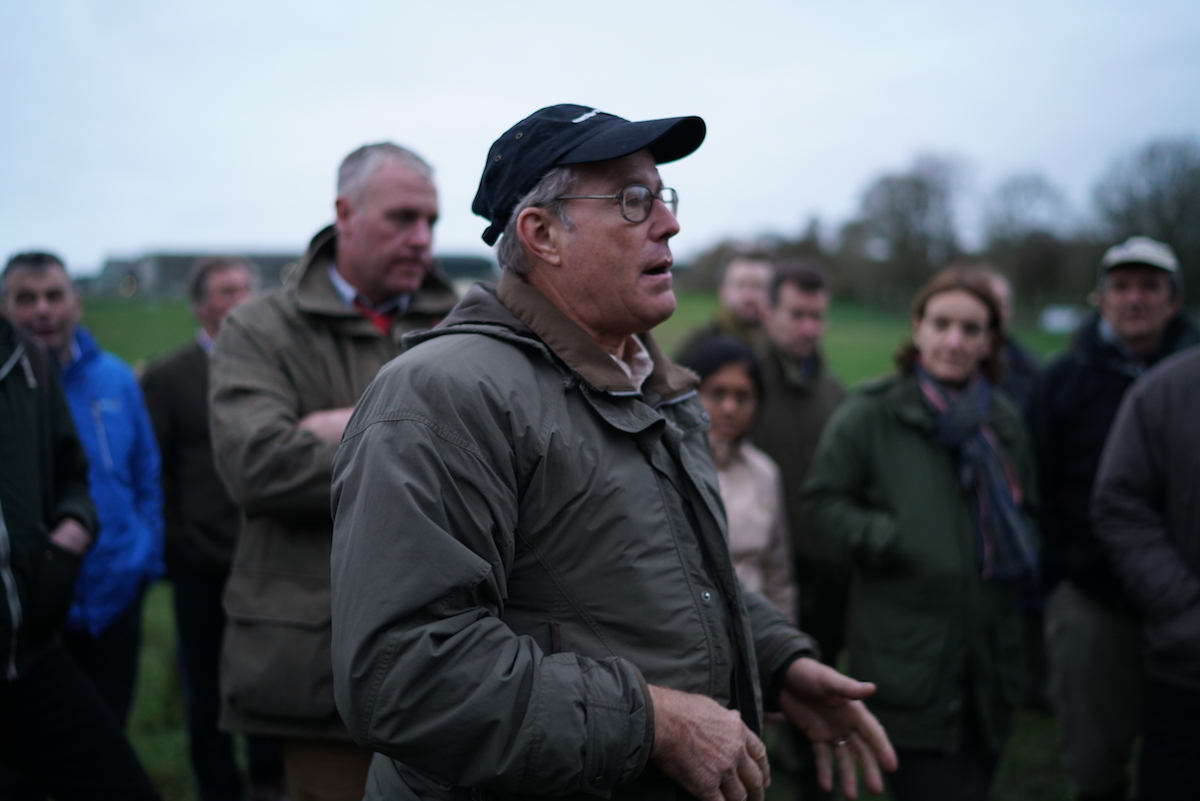I recently attended a 2-day workshop run by the Sustainable Food Trust titled ‘The Role of Livestock in Future Farming Systems: From Theory to Practice’ featuring Joel Salatin and a diverse range of expert panelists.
It was an extraordinary and diverse gathering of some of the UK’s leading food producers who had come together to learn from the pioneering livestock farming systems developed by Joel Salatin at his Polyface Farm in Virginia. For anyone who hasn’t come across Joel before TIME magazine dubbed him the world’s most innovative farmer. His holistic grazing and mixed stocking systems are featured prominently in Michael Pollan’s seminal book The Omnivore’s Dilemma and the documentary film Food, Inc – both of which have helped propel him to international fame, inspiring many conventional and organic farmers to adopt his methods in the process.
I got to see Joel speak for the first time at a free lecture and panel discussion held at Bristol University the evening before. He’s an incredible story teller and made a passionate case for how livestock are vital to restoring ecosystems (you can watch the presentation below).
After Joel we heard from four panelists – each giving 5-minute presentations. The panelists included Tara Garnett (see 47 mins in above) – who initiated and runs the Food Climate Research Network. Simon Crichton (see 40 mins in) – an organic food expert with over 15 years of agricultural banking experience – who now heads the food, farming and trade team at Triodos Bank. Mark Eisler (see 34 mins in) – Chair in Global Farm Animal Health at the University of Bristol and Zoë Harcombe (see 55 mins in) – a researcher with a PhD in public health nutrition. These snappy and informative presentations led into a heated panel debate with Joel and Tara Garnett holding opposing and seemingly irreconcilable viewpoints, mainly around the benefits of holistic grazing.
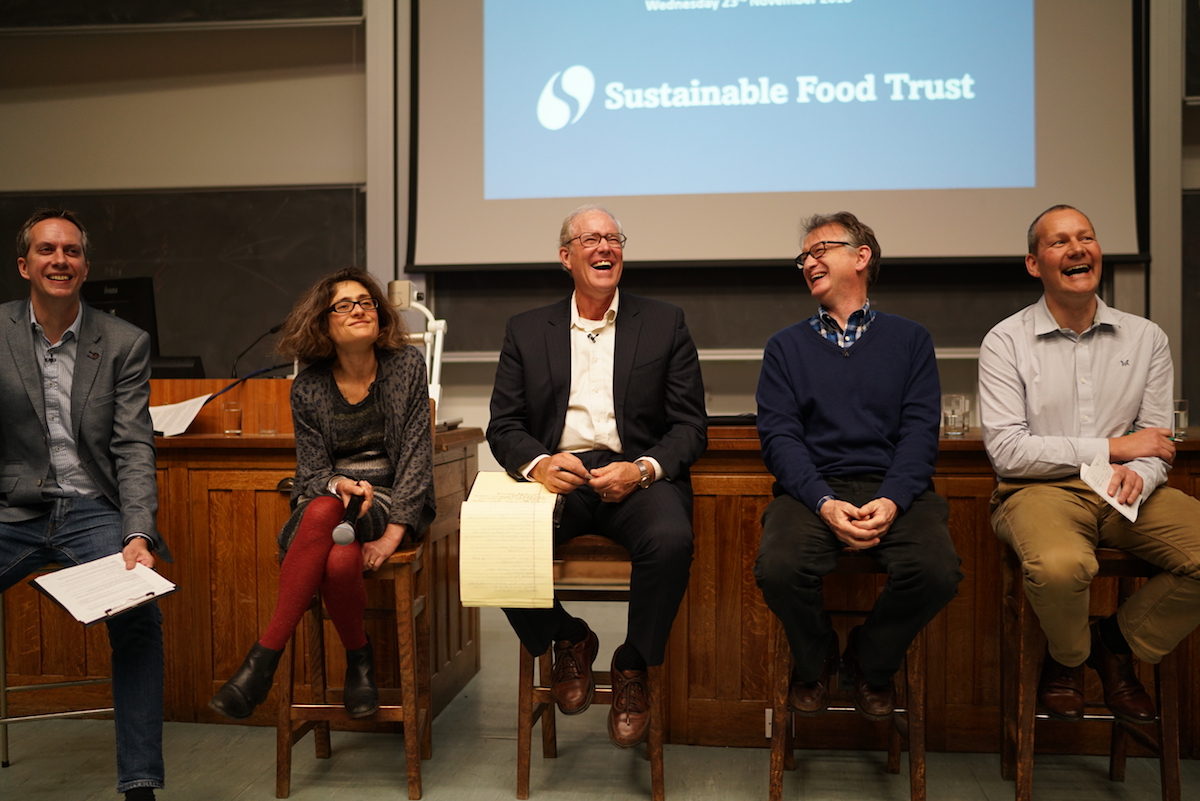
Fir Farm – Day 1
Moving from the lecture theatre to the fields of rural Gloucestershire we arrived at Fir Farm in Lower Swell – the venue for our 2-day workshop provided by our generous hosts Sir Alan and Lady Parker.
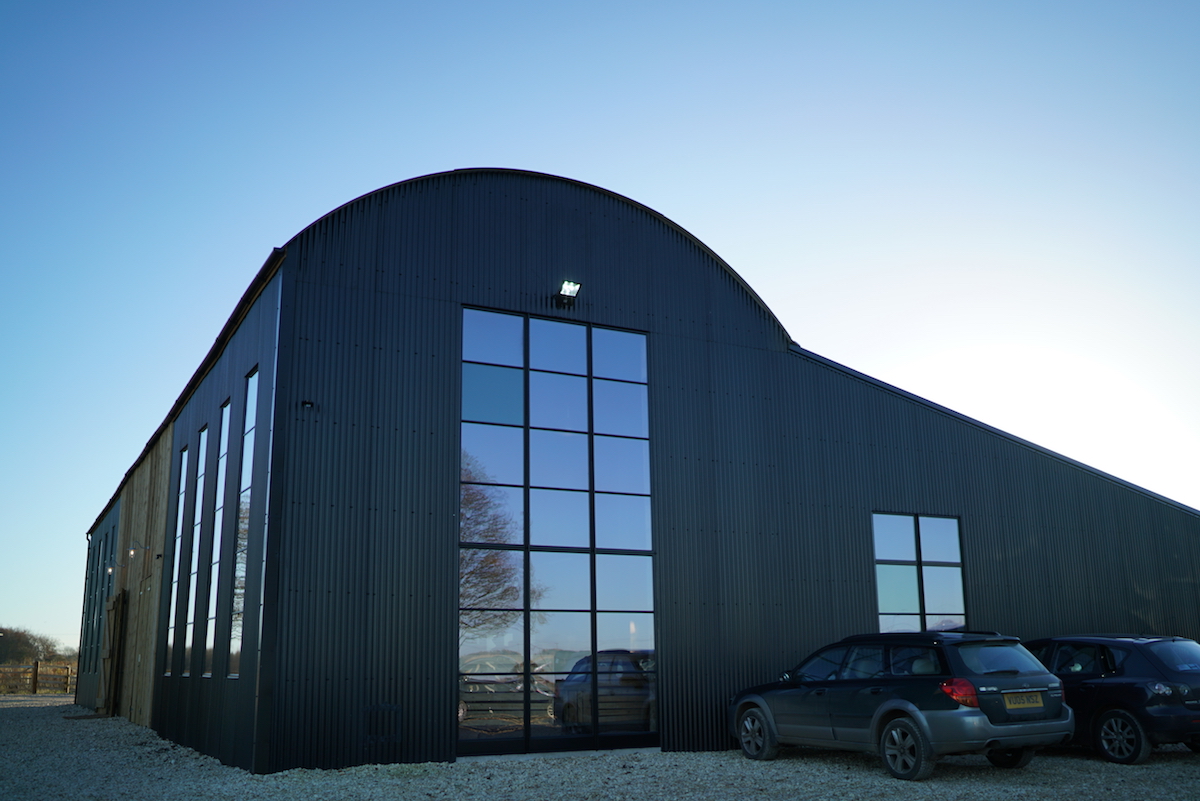
After a short welcome and introduction speech by Patrick Holden, Joel took to the stage to describe the approach he has developed over 30 years in the management of a beef herd, pastured poultry and pigs. It was fascinating to learn that his farm services more than 5,000 families, 10 retail outlets, and 50 restaurants through on-farm sales and metropolitan buying clubs with salad bar beef, pastured poultry, eggmobile eggs, pig aerator pork, forage-based rabbits, pastured turkey and forestry products using relationship marketing.
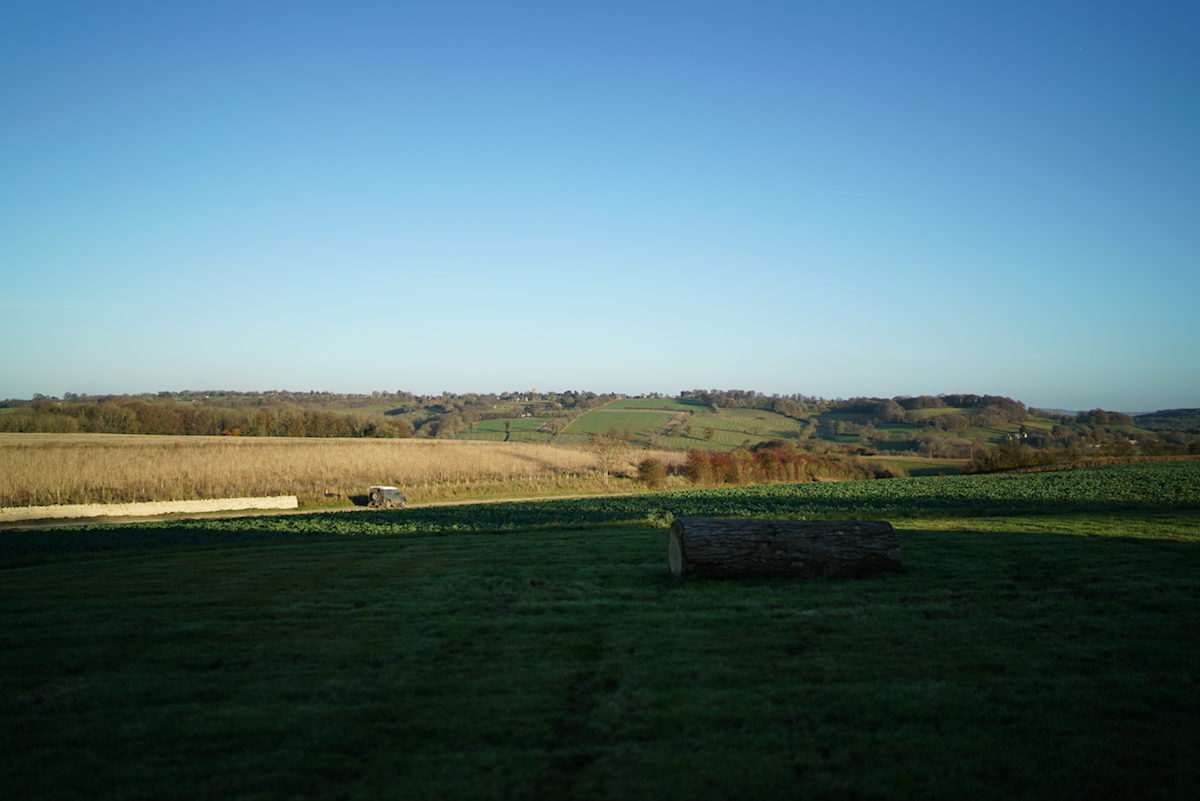
On family farming and succession – I thought Joel’s advice on ‘creating a farm that your children want’ really resonated, as well as some useful tips on how to work with your farming parents in a way that ‘doesn’t threaten the mothership’. A topic I returned to later in the day when I got to interview him. However, what I found most exciting is his claim that we could sequester all the carbon that has been emitted since the Industrial Age if every farmer in the U.S practiced his regenerative farming system.
“If every farmer in the U.S would practice this system we would sequester all the carbon that has been emitted since the industrial age”
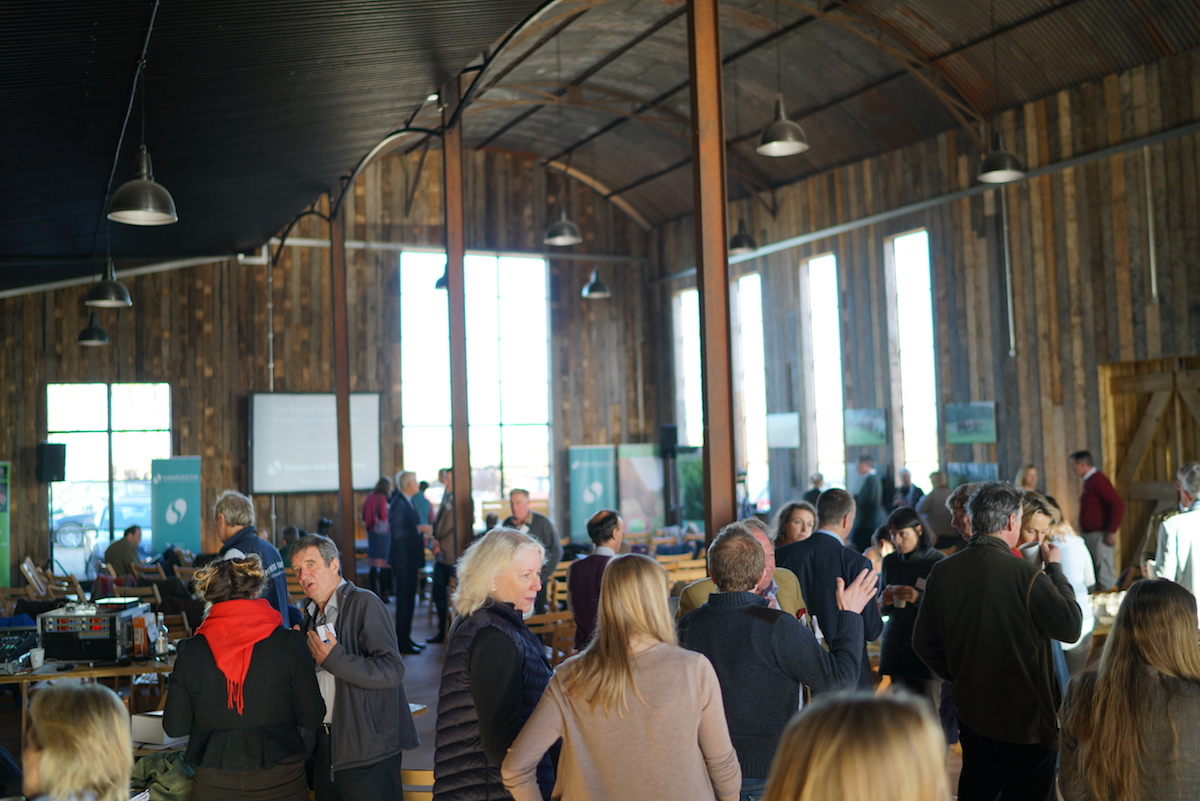
Tour of Fir Farm
After Joel’s speech and with the light fading fast we headed out on the farm for a quick tour..
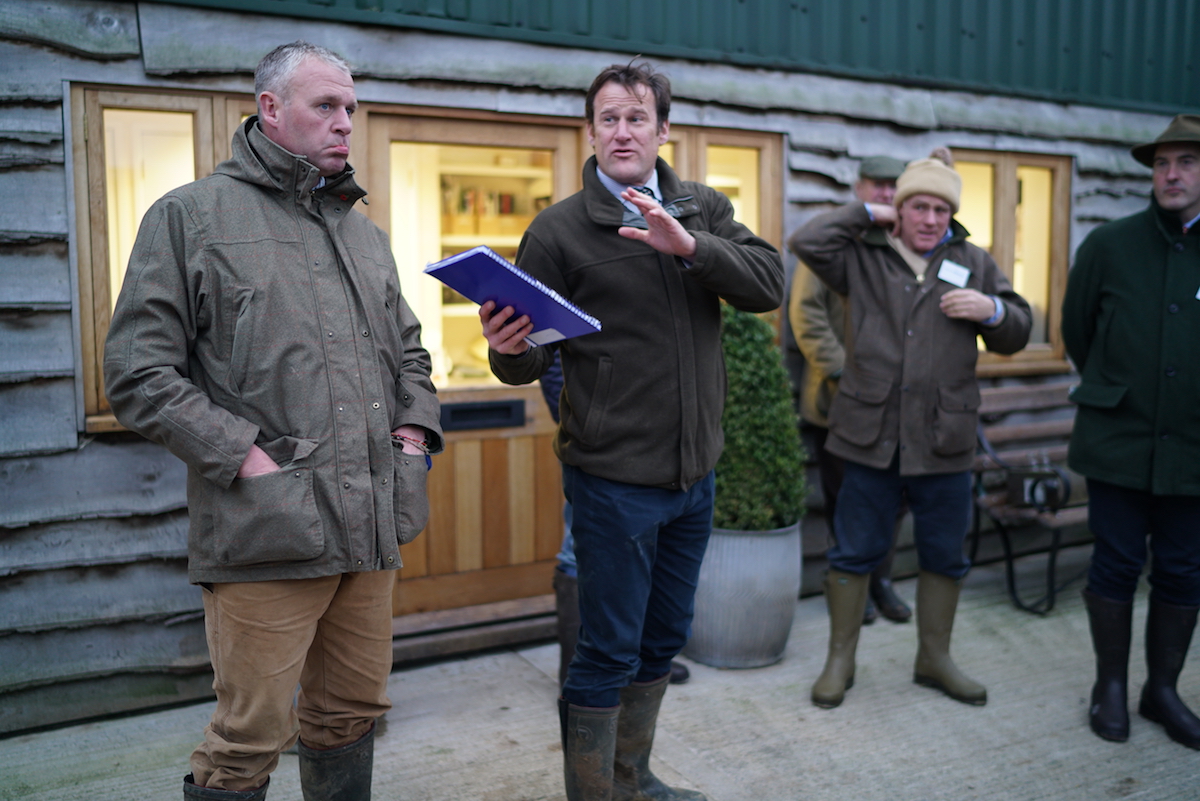
The ‘Prototype’ Chicken Tractor
The team at Fir Farm have designed and built this prototype chicken tractor based on the ones used at Polyface Farm.
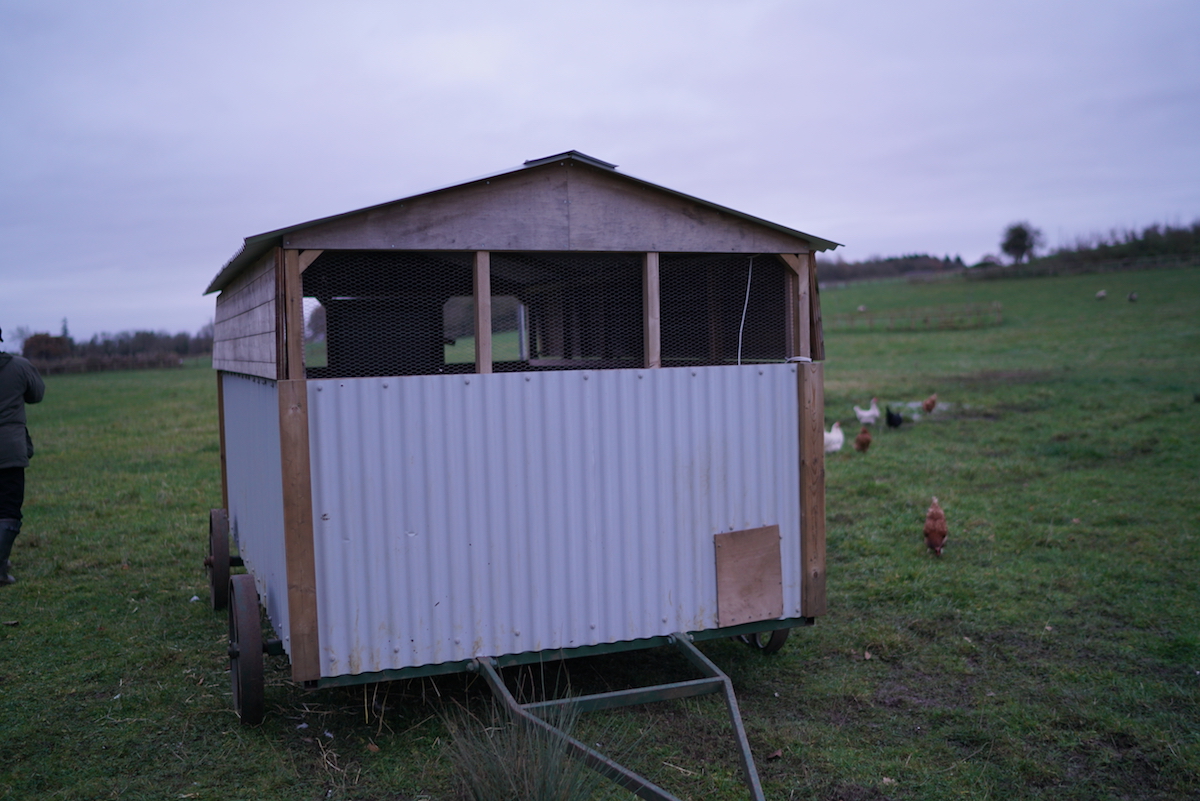
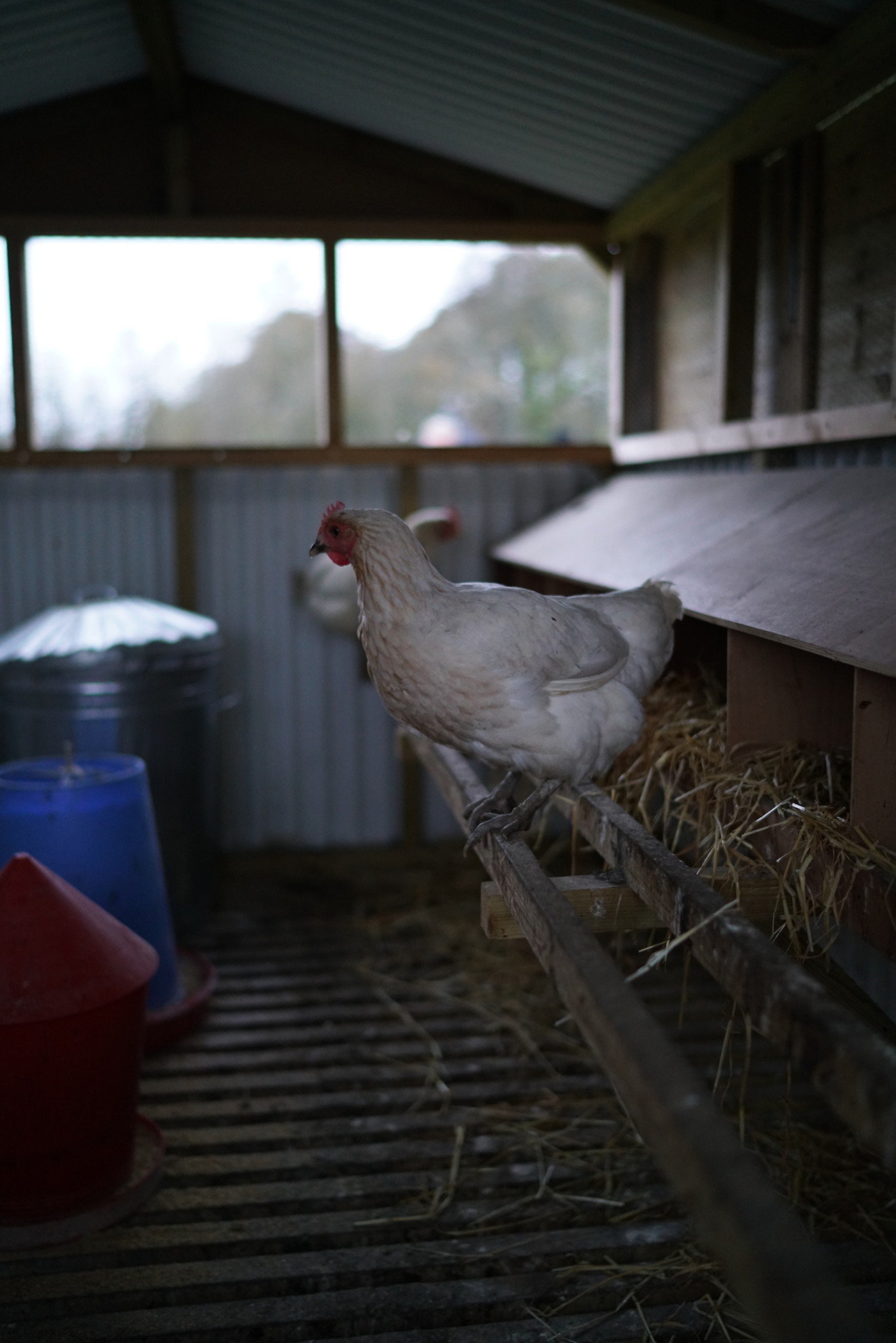
The Hereford Cattle
We got to see a few of their Hereford cattle out in the field and heard how they move them weekly but with darkness upon us, we headed back to the main set of buildings to inspect some of the cattle that have been brought inside for the winter months.
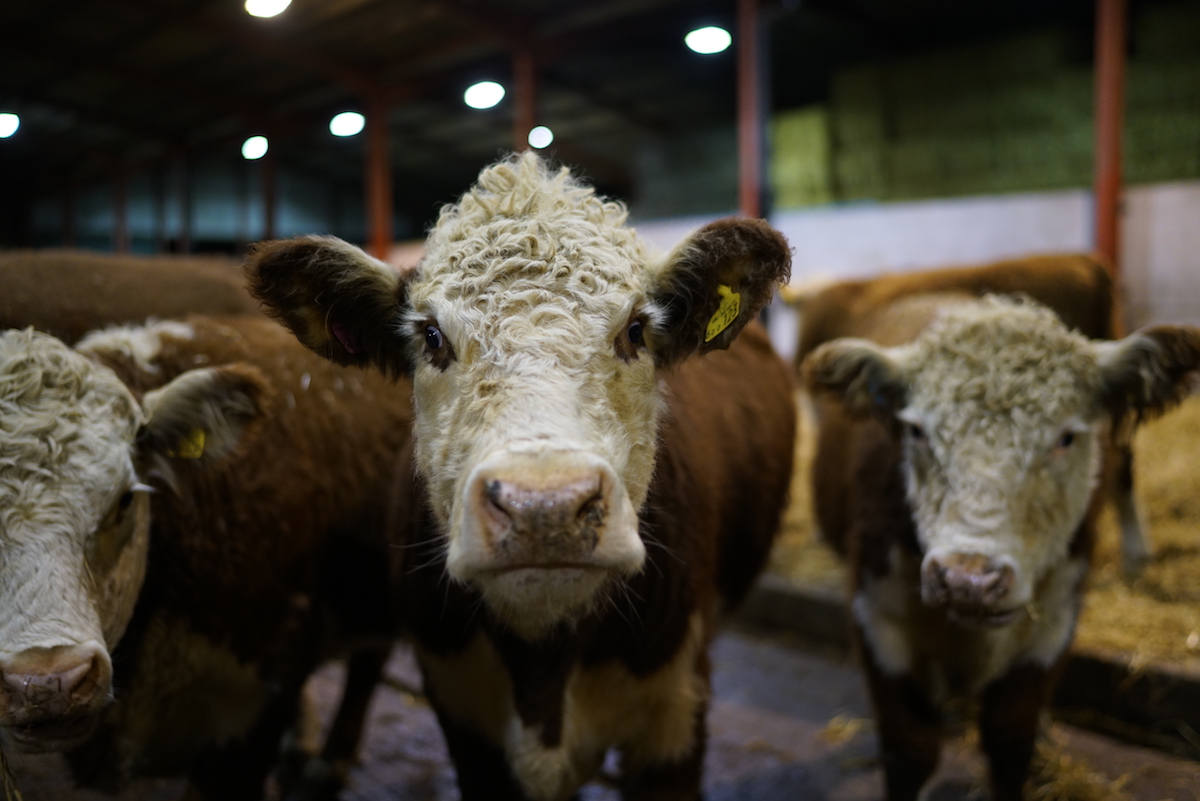
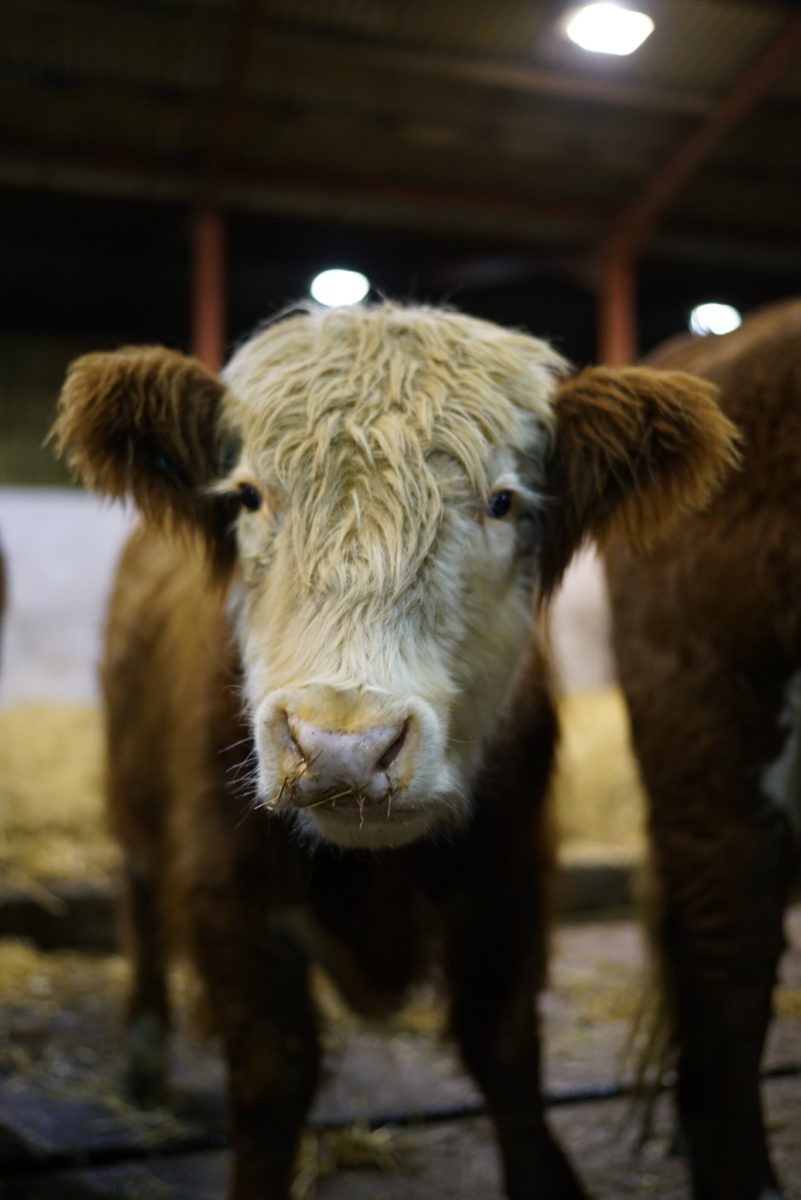
Meeting some of the participants
One of the most interesting aspects of the workshop was getting to meet other farmers and food producers from around the U.K. Here are just a few of the participants I managed to speak with and photograph over the two days.
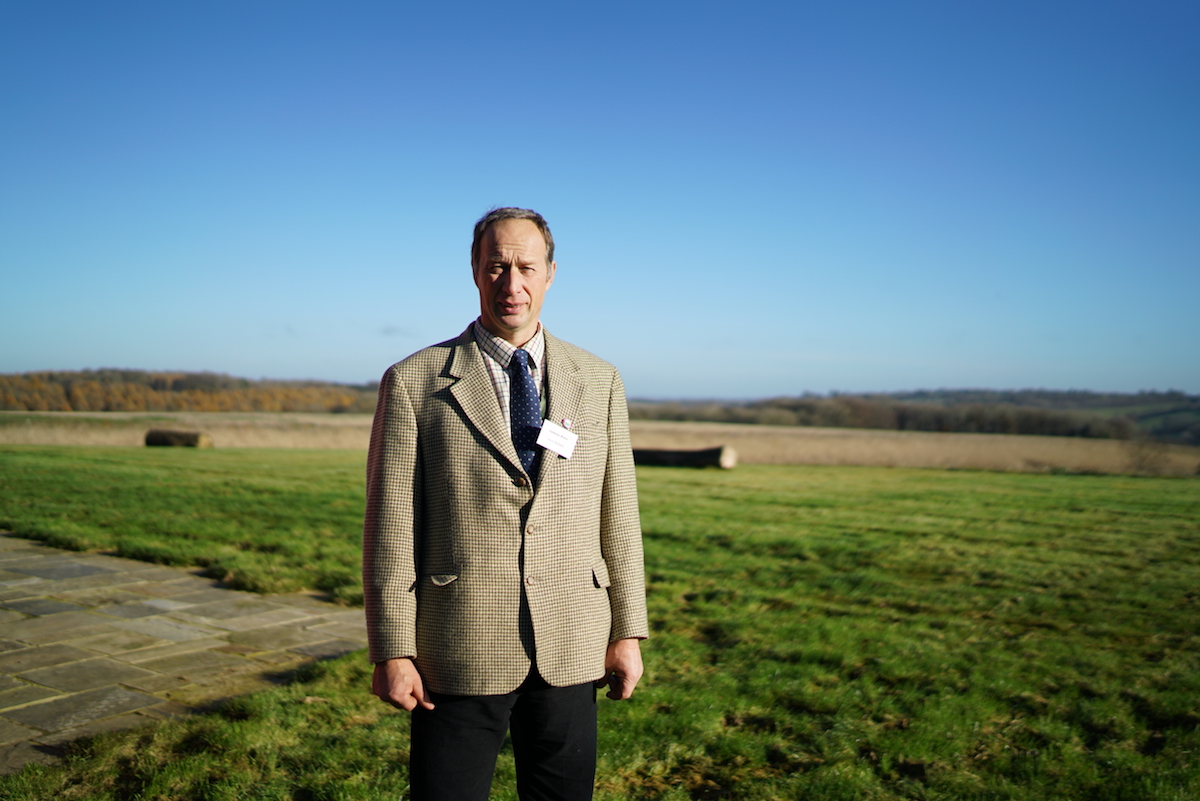
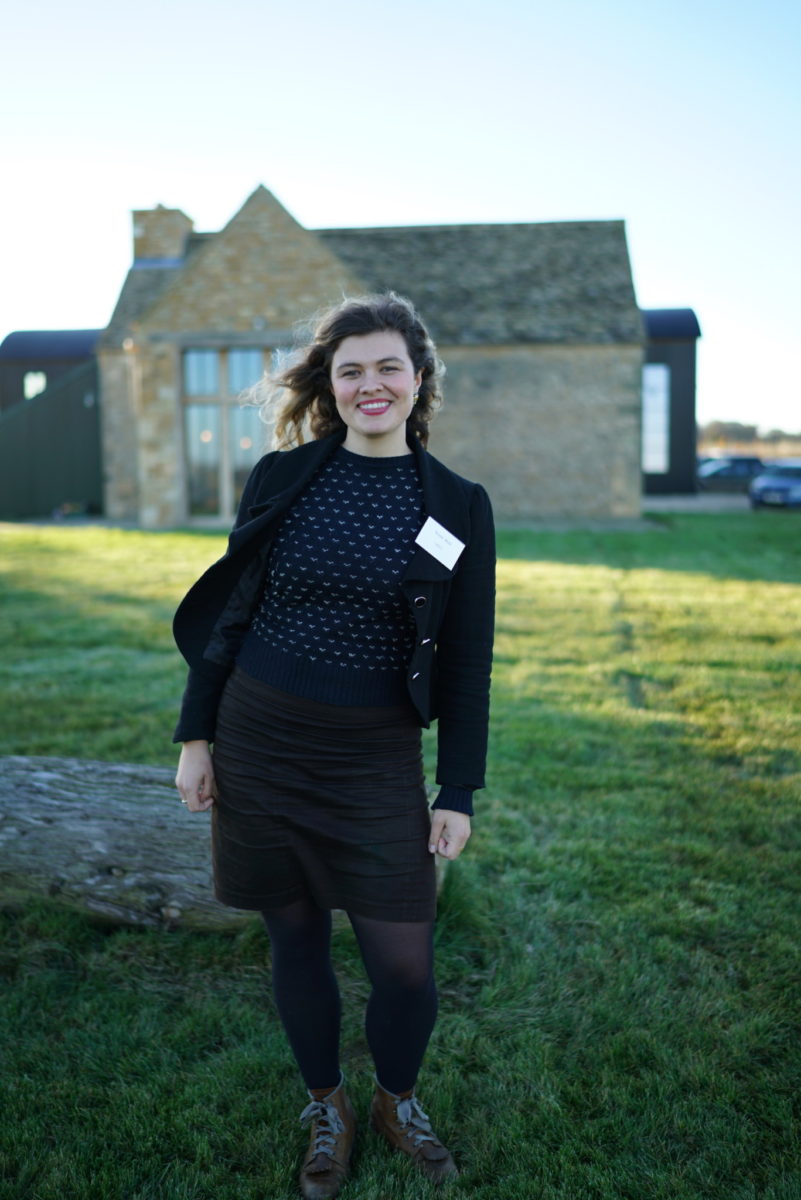
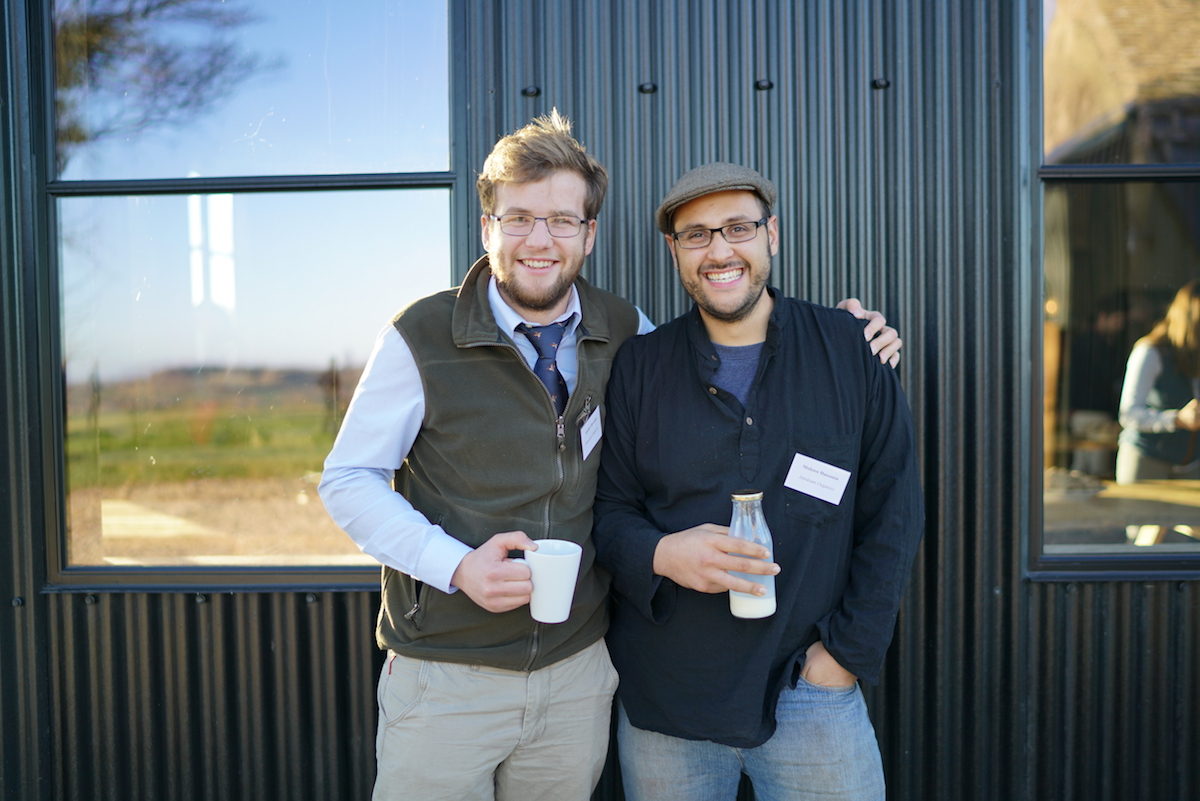
Fir Farm – Day 2
The second day of the workshop was dedicated to a series of sessions exploring some key themes and drawing on the expertise of Joel and the expert panelists.
Session 1 – Practical application of ‘mob’ / holistic grazing techniques
First up we got to hear from Andrew Brewster from Brewster Cattle Co, who talked us through his mob grazing techniques and showed us some useful practical tools and things to think about. Then Dairy Farmer Robert Craig from Dolphenby Farmer, Cumbria spoke about the importance of the plate meter in his grazing system and the challenges of the dairy in general.
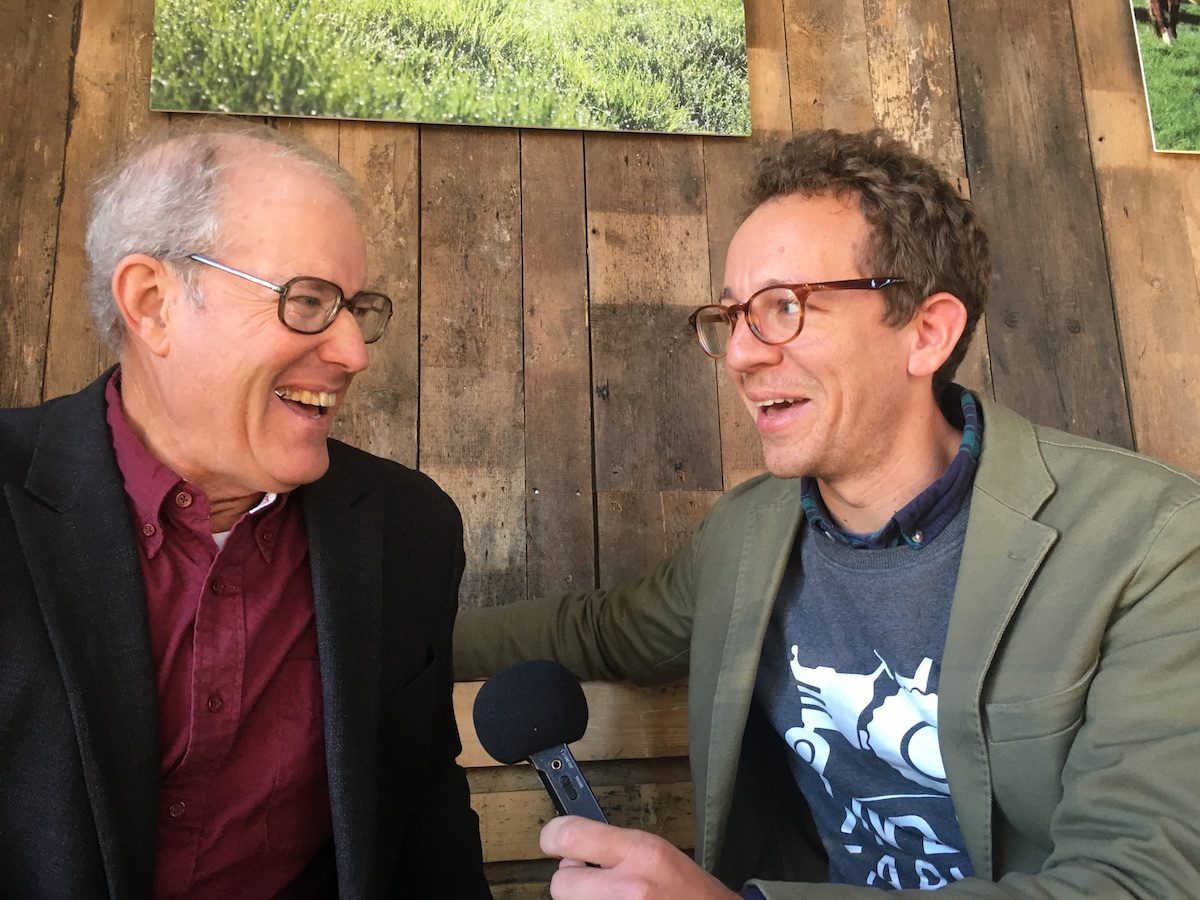
Session 2 – On farm processing as a key element of vertical integration
Nina Purcell from the Food Standards Agency spoke about regulation and how they want to make it easier for farmers to process their own produce. We then heard from Thomas Harttung from Aarstiderne talk about a project in Norway, where they have split an 800 acre farm in eight 100 acre farms to help drive innovation. Lastly, Christine Page from Smiling Tree Farm gave us an overview of her micro dairy, beef and lamb farm – where she sells everything direct.
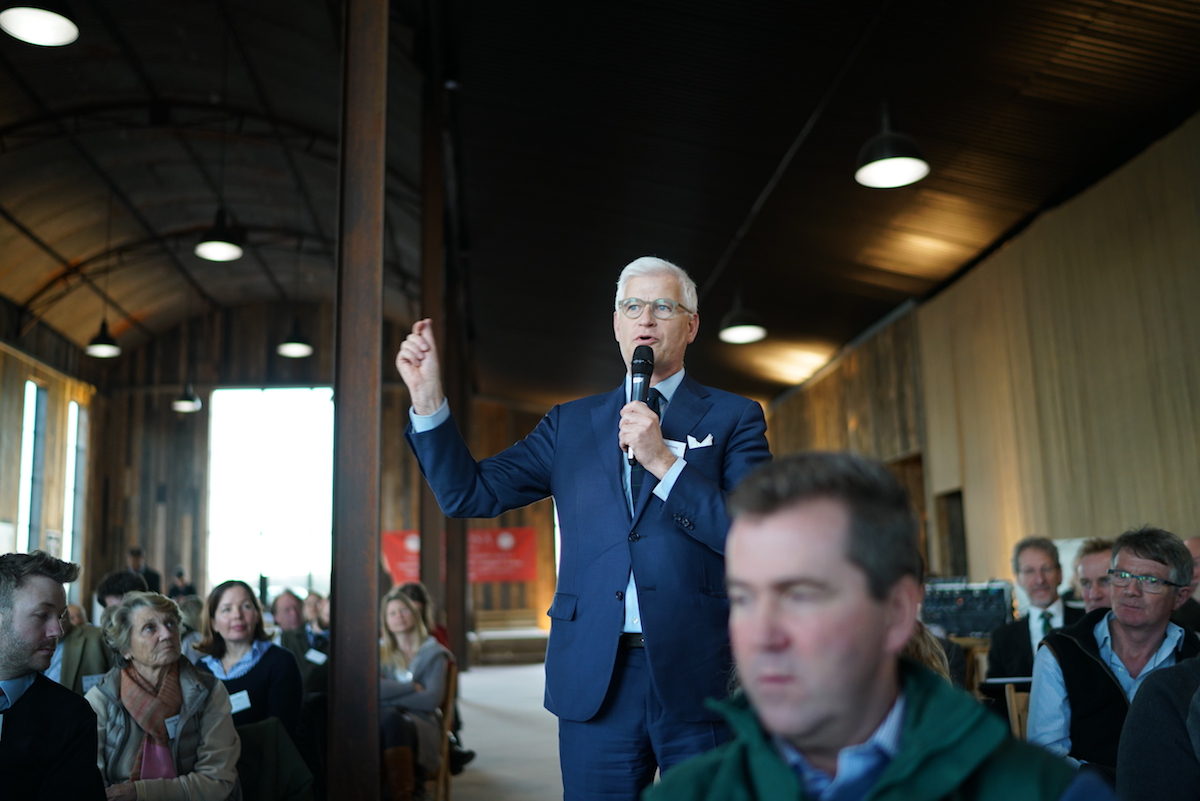
Session 3 – Marketing opportunities for sustainable livestock products
In the final session we got to hear how Lord Newborough uses Bisen to slow traffic and attract visitors to Rhug Estate, how the Pasture Fed Livestock Alliance needs more producers to meet the growing demand for grass fed beef by John Meadley and Tim Field from Daylesford gave us an overview of their farming and direct sales food business and gave a short introduction to Agricology a new farmer to farmer platform for sharing best practice.
What happens next?
There were a number of exciting ideas from the event but one that really stood out for me was the establishment of a comprehensive dataset of the soil carbon outcomes from different farming systems. It was agreed that this would really help inform policy makers, especially those who have an interest in rewarding farmers for being soil carbon stewards.
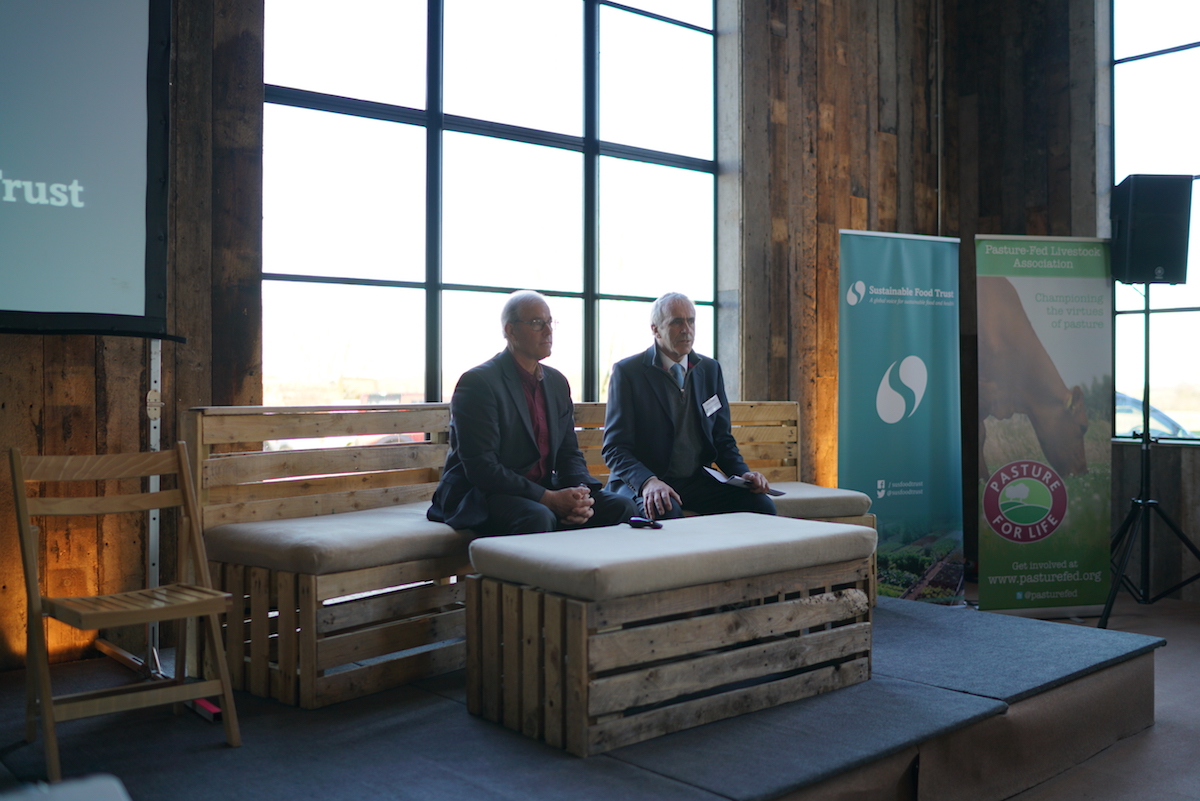
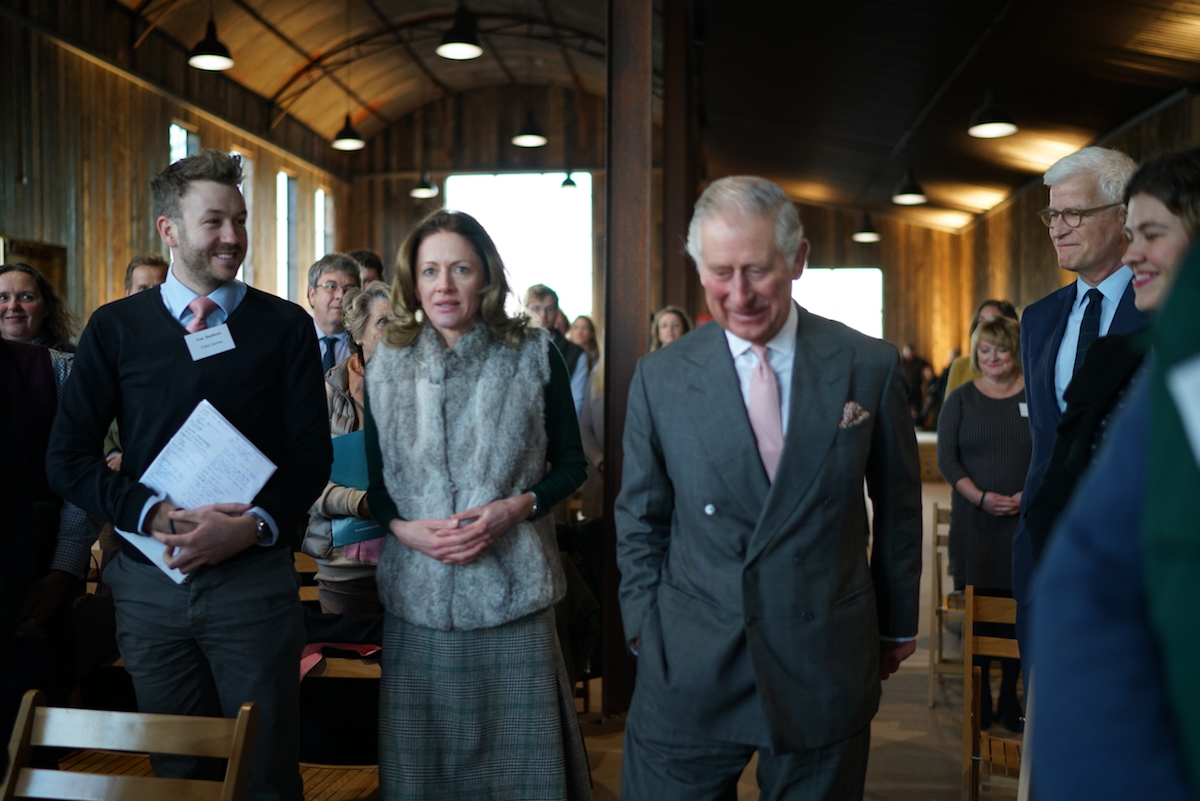
Like us on facebook and follow us on twitter to stay up to date with the latest Indie Farmer stories
Enjoyed this report? Share It! (with our social media sharing tools below)
More Information
Stay tuned for our upcoming Q&A with Joel Salatin – you’ll also be able to hear our chat in episode 17 of Farmerama Radio due to be released on Christmas Day 🎅



